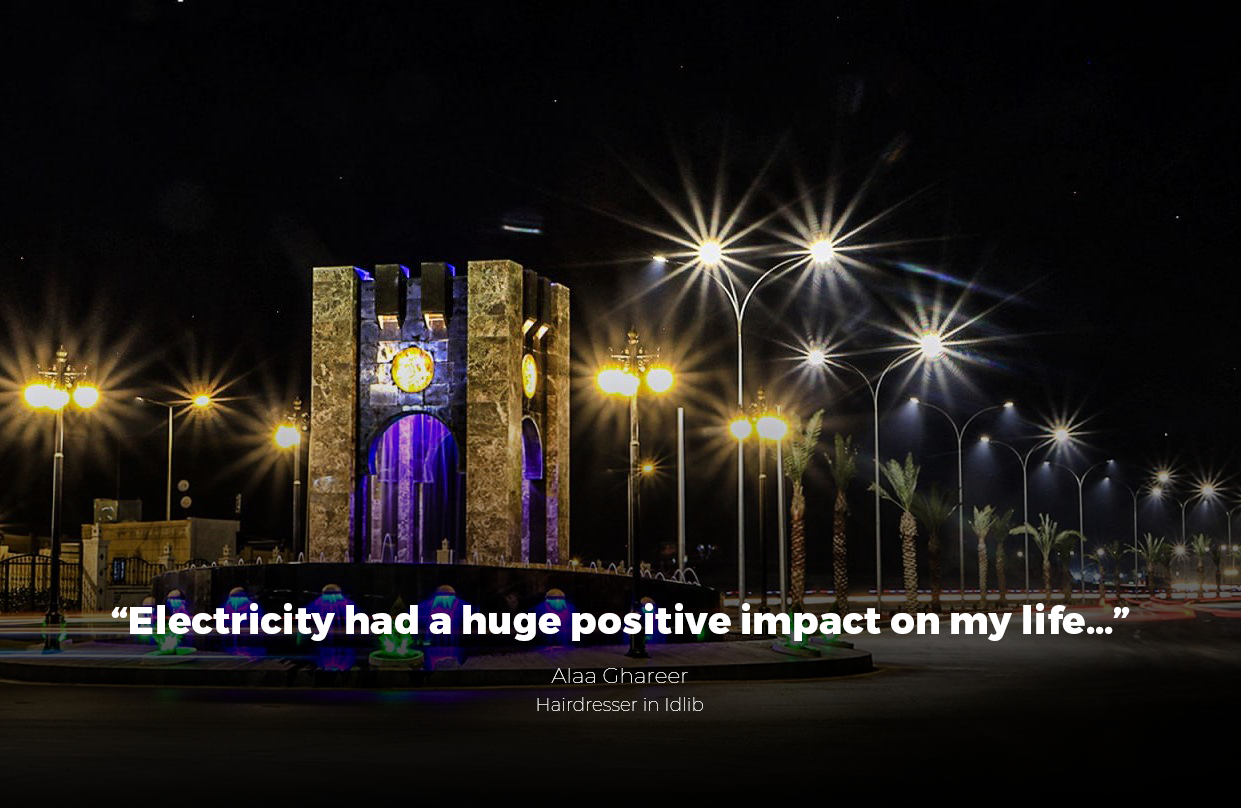
After a decade of living without electricity, the resilient Syrian people in Idlib have achieved a remarkable milestone. It has been precisely two years since the introduction of electricity by the Green Energy Company (GEC) in Idlib, which draws electricity from Turkey and illuminates the lives of a population that had long endured the darkness of continuous warfare and devastating bombings. In their quest for alternative power sources, this milestone marks a significant turning point for the people of Idlib.
Life without electricity
Since the beginning of the revolution, the Assad regime gradually stopped supplying electricity to areas outside of their control. As a result, people in the liberated areas were forced to look for alternative means of generating electricity. The first few years saw people relying on buying power from private generators under subscription to get a few hours of electricity daily. Another option was found with the introduction of solar panels and batteries, but this also had shortcomings. Users had to minimize electric usage at night and on winter days without sunlight. The GEC resolved these difficulties previously faced by the public.
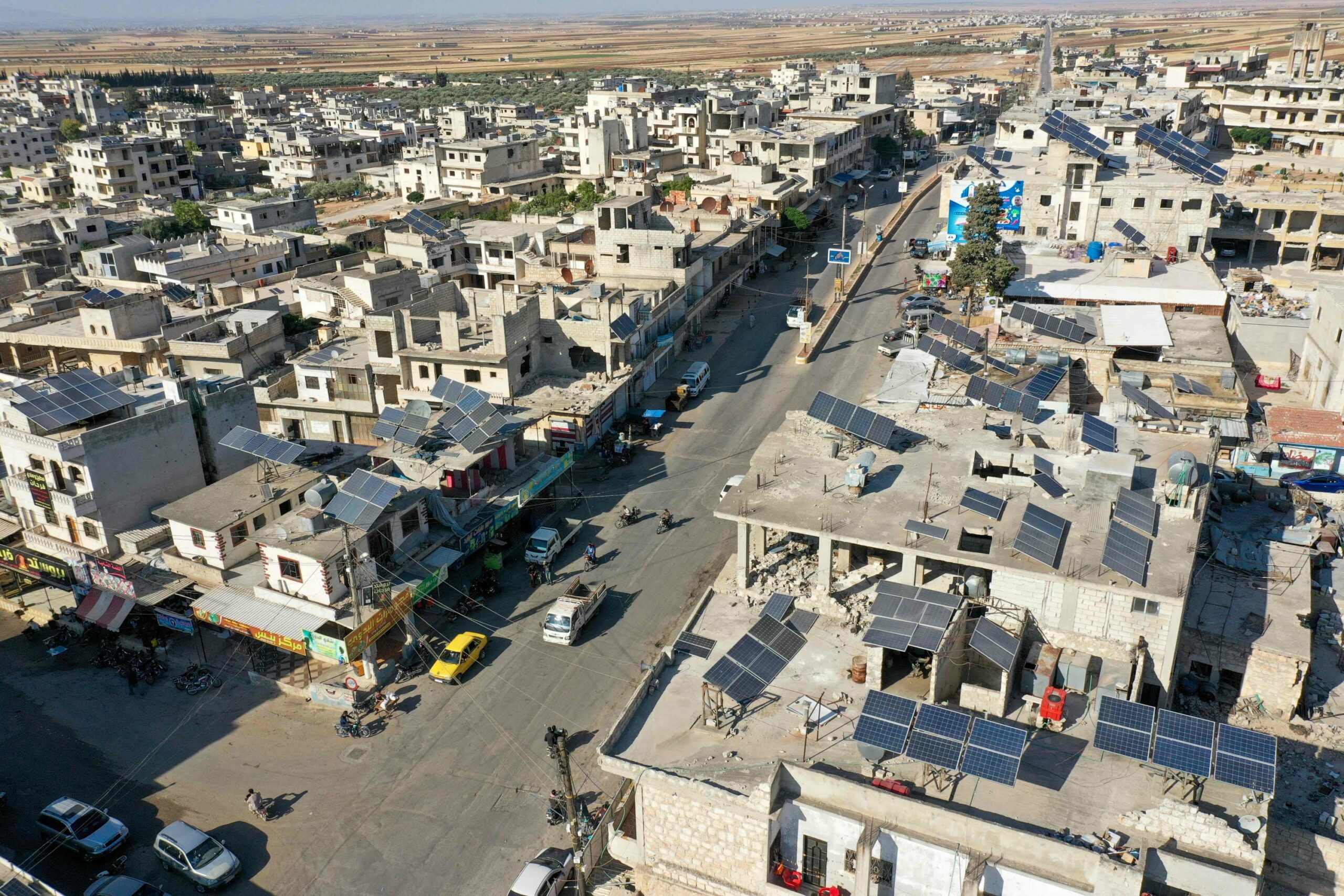
A Ray of Hope
First established in 2014 in Aleppo governorate under the name GE Power (GEP). In 2019, GEP merged with Green Future Investment Company under the new name of Green Energy Company. According to the company’s General Manager Omar Shaqrouk, their goals are to establish electrical power projects, maintain the infrastructure of electrical networks and stations and invest in electric power and distribution. He explained how electricity is delivered to the liberated areas from Turkey. “A Turkish private company signed a contract with the Turkish Ministry of Energy to supply the Idlib region with a high-frequency line connecting the Reyhanli station to the Harem station.”
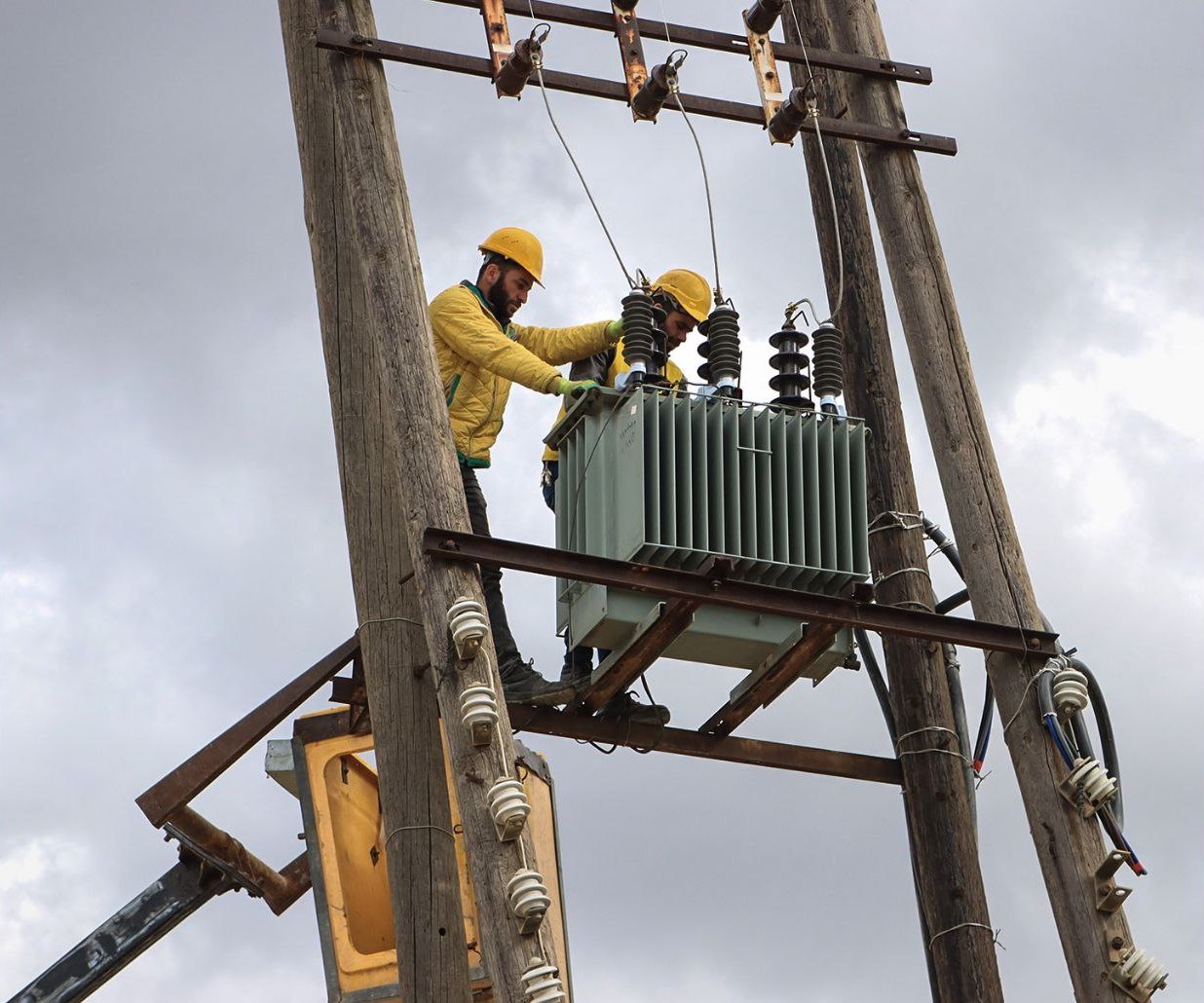
Light At the End of the Tunnel
The return of electricity was met with a warm welcome from the civilians who had eagerly been awaiting it. Electricity opens many opportunities and brings civilians ease of life. Alaa Ghareer, a hairdresser, spoke about the benefits and changes in life due to the availability of electricity. “Electricity had a huge positive impact on my life in general, as I was able to do all the work and tasks that require electricity at all times of the day, unlike before when I had to work at certain times because I had to wait until the generators turned on. It has alleviated many hardships and problems like turning on fans or air conditioners in hot weather and heaters in cold weather and preserving food in the refrigerator.”
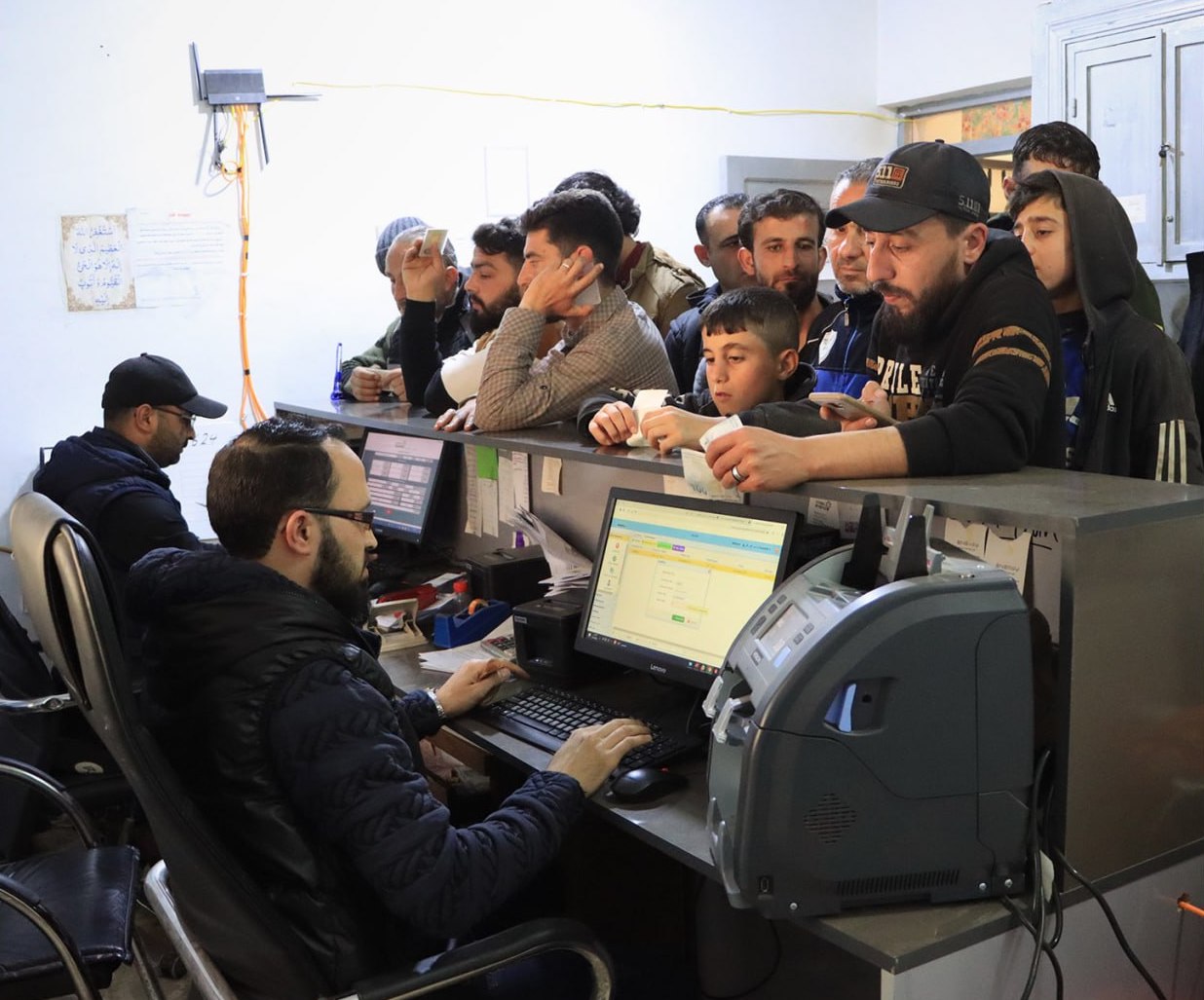
Electricity being the backbone of daily life and its return after ten years was met with great demand to register electricity subscriptions in different regions. According to Mr. Shaqrouk, electricity has reached more than 70% of the liberated areas with 160,000 subscribers, including 130,000 domestic, 27,000 commercial, and 2,000 industrial subscribers. He added, “By the end of 2023, electricity will have reached more than 95% of the region, God willing.”
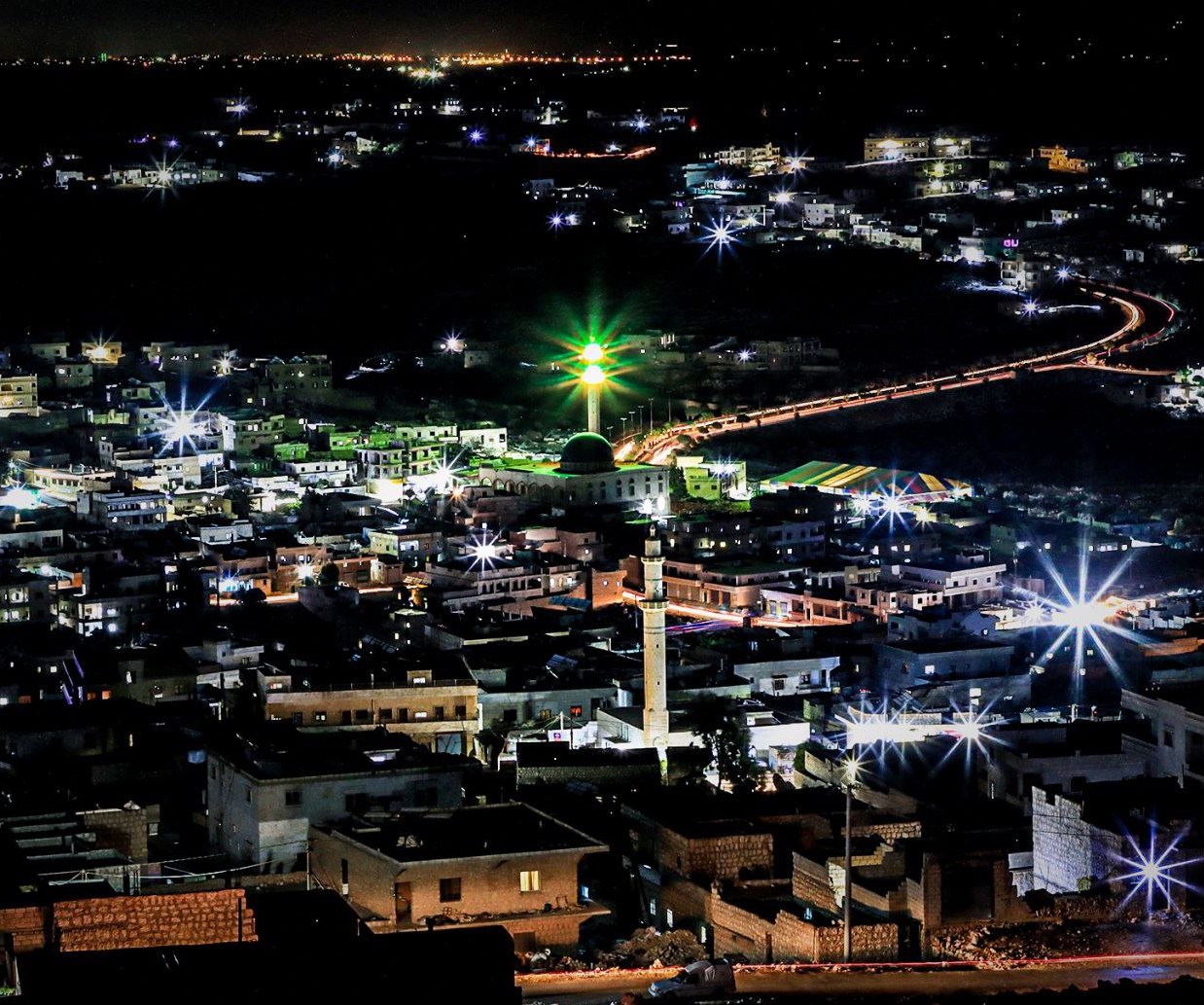
In addition to civilians and small businesses, the medical sector has greatly benefited from the arrival of electricity. Most hospitals relied on solar energy systems and diesel generators before being supplied electricity by GEC. Media Representative, Bahaa Sweed at al-Rahma Hospital in Darkush, told L24, “Alternative power sources were expensive and sometimes insufficient for use in the hospital. Several procedures had to be put on hold due to a lack of fuel. But today, with the availability of electricity, many medical machines, such as CT scanners and incubators, are up and running. We have started doing procedures we could not do before.”
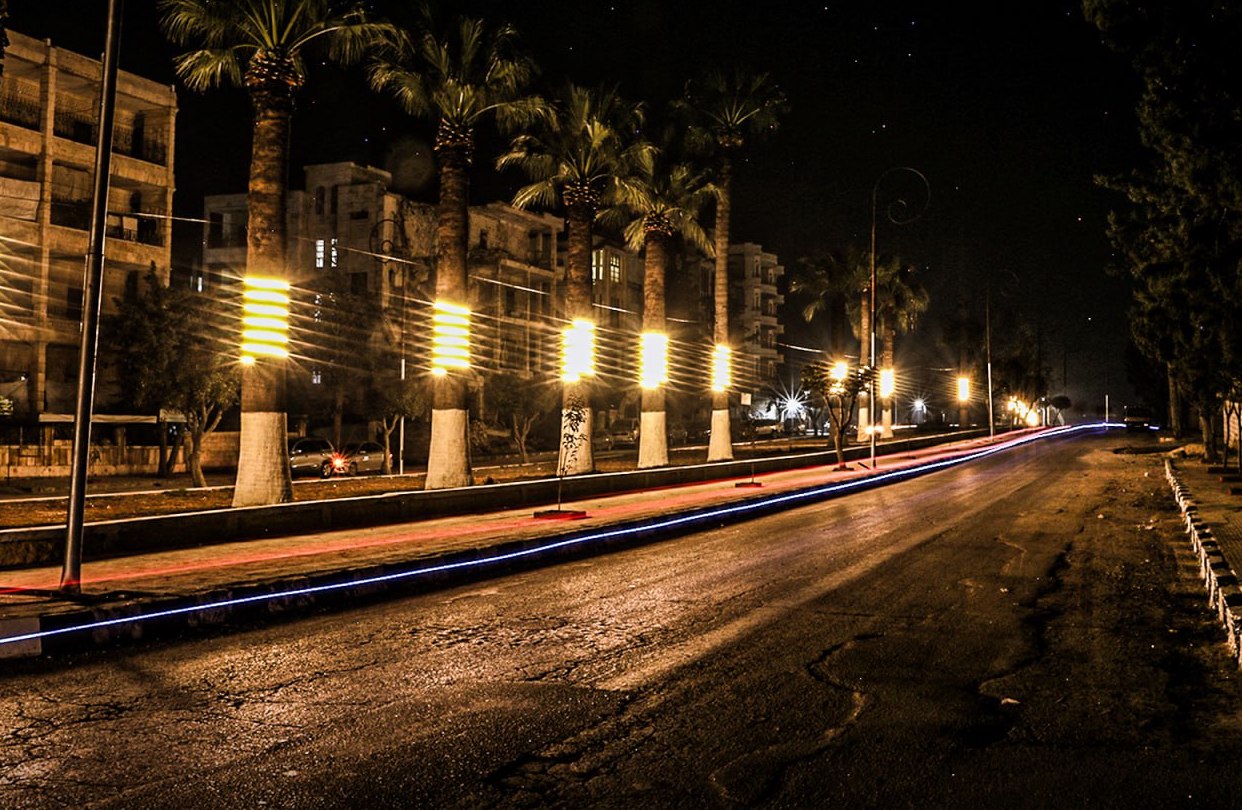
The commercial and industrial sectors, which heavily relied on expensive solar energy systems and noisy diesel generators, have also been replaced by GEC electricity. According to Shaqrouk, electricity has provided them with continuity in work at a lower cost, 24 hours a day.
A Costly Comfort?
Although the return of electricity has eased the situation for civilians in the liberated areas, it has come at a price. With worsening economic conditions, many civilians find the costs of electricity expensive. Ghareer said, “It is excellent, in my opinion, but its price is too high, although the services are good and available around the clock. I need about $50 for the electric bill each month for the house and the barbershop.” Sweed also mentioned the high price of electricity, stating, “The cost of electricity is considered high compared to the current economic situation and the lack of (charitable) organizations’ support for the medical sector. It’s still more expensive than electricity inside Turkey.”
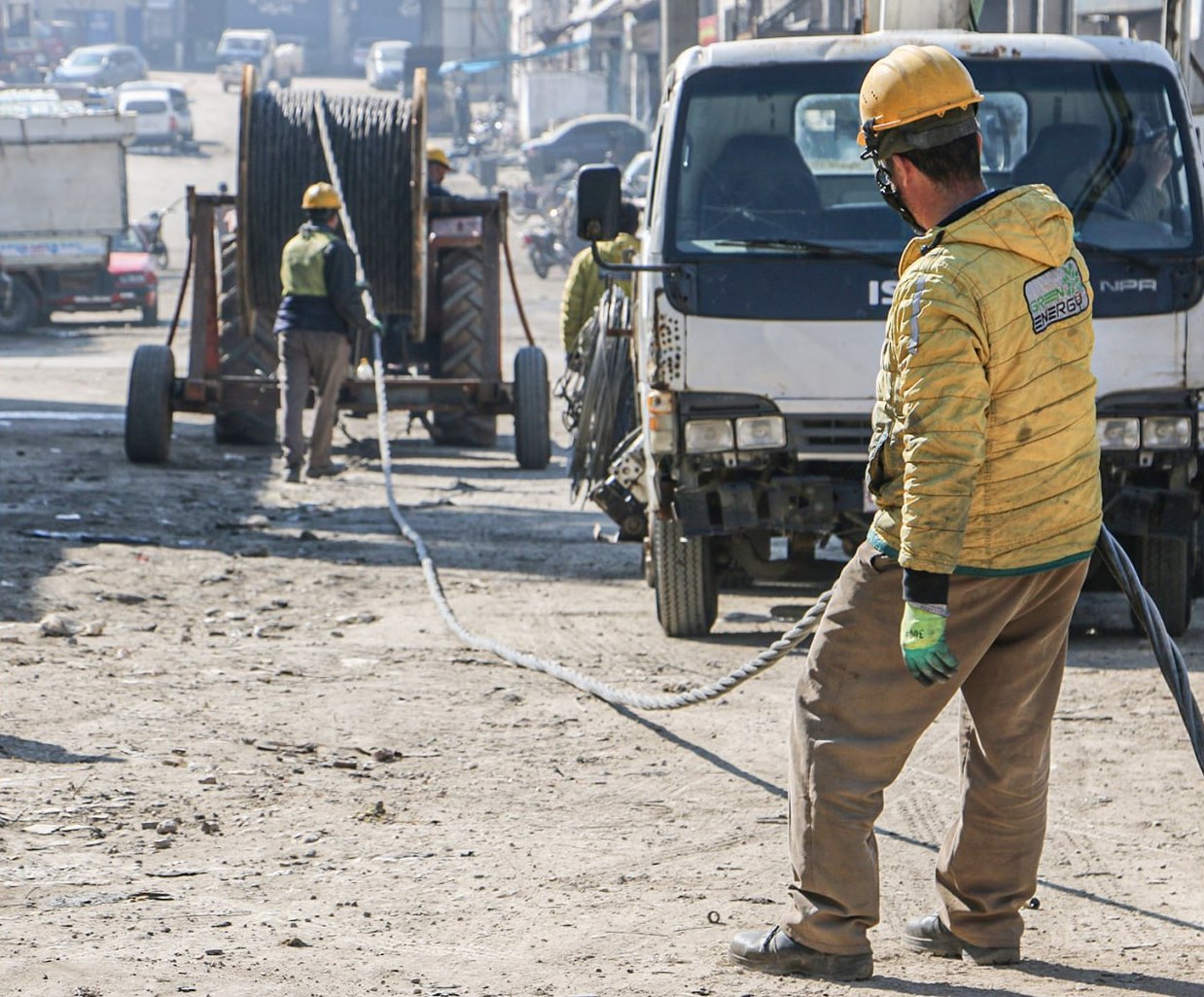
However, it is important to note that the availability of electricity has actually resulted in cost savings for some establishments. When asked about these financial benefits, Private Al-Uloom school in Idlib and Falahin gas station shared their experiences. Al-Uloom revealed that they now pay $100 monthly for green energy electricity, as compared to the $200-$300 they used to spend during winter for a generator, not to mention the additional costs for repairs. Falahin gas station in Idlib city also confirmed that they now pay $80-$100 monthly for electricity, a significant reduction from the $100-$300 they used to spend on generator fuel, depending on the weather.
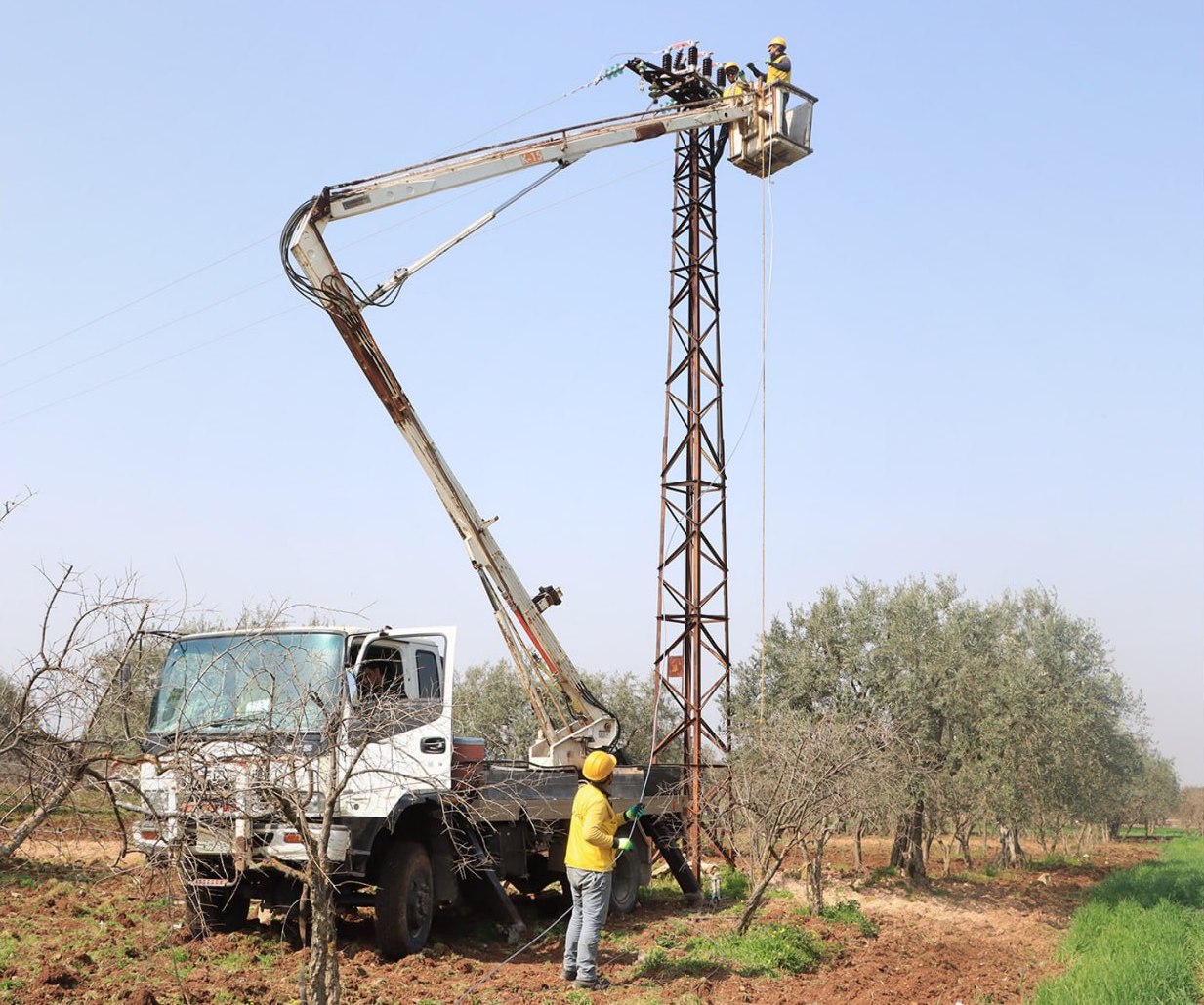
When Sharqouk was asked about the rise in prices, he said, “Prices are generally stable, and any price increase is a global increase, the last of which was during the energy crisis. In Turkey, the cost of electricity has increased dramatically, but for them, it’s subsidized by their government, and we get electricity without the subsidy.” He also noted a slight decrease in subscribers due to increased prices. “Some industrialists unsubscribed because the prices did not suit them. However, the number of subscribers keeps increasing since we keep expanding the service to new areas.”
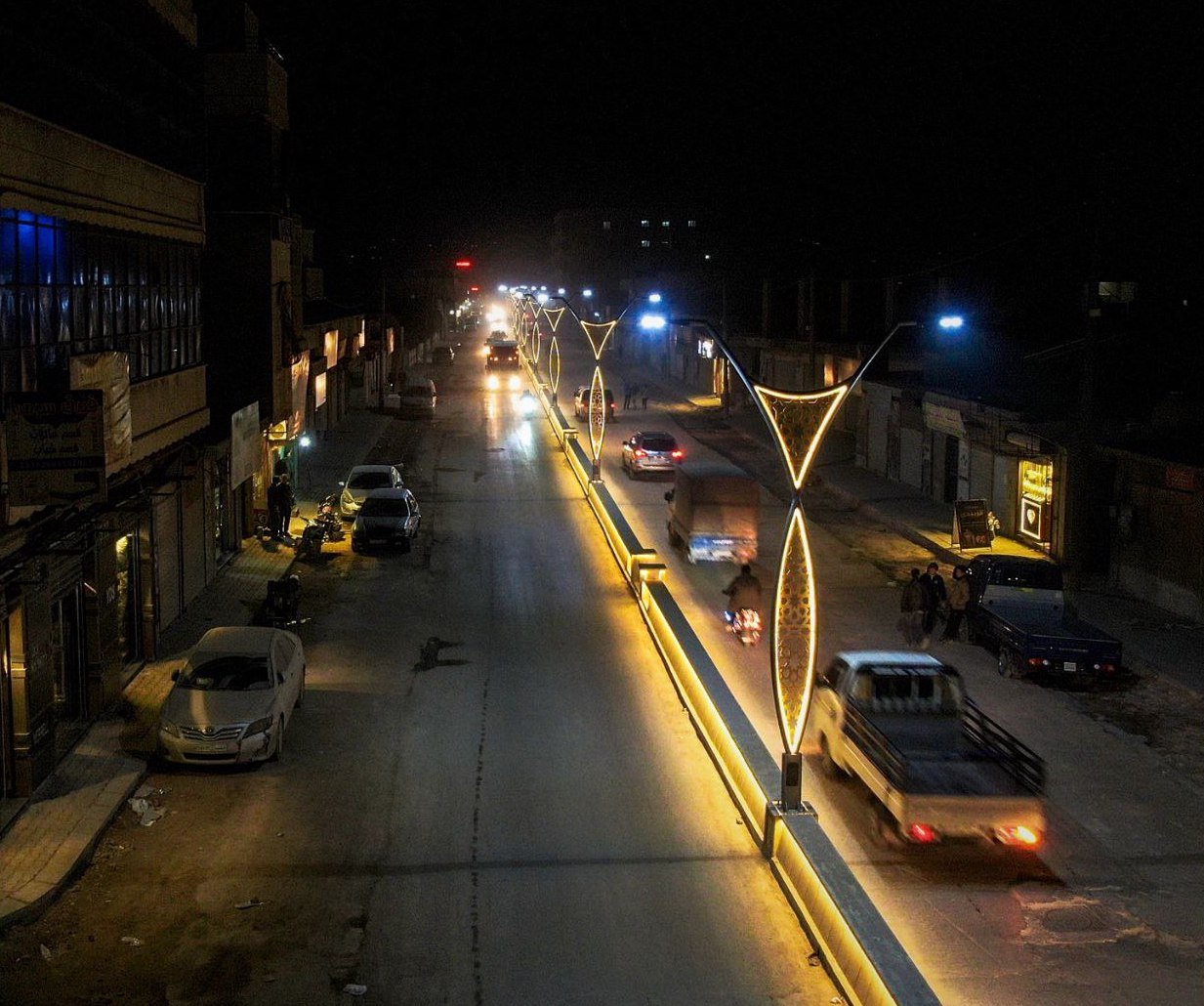
It is worth noting that the liberated areas have made significant progress compared to regime-held areas in providing services to the public. According to Sharqouk, GEC has provided electricity in one and a half years to 70% of all cities and towns and powers street lights on the main roads and cities. He also mentioned, “Electricity in regime-held areas does not reach the population more than an hour at best. We also see, regularly, the great discontent on social media by the loyalists and the people, due to the electricity outages and the great suffering they go through as a result of these long outages.”
Even though the challenges are certainly many, the return of electricity has proven to be a milestone for the people of the liberated areas. It represents a quantum leap in rebuilding and returning to normal life after a decade of living under constant bombardment and destruction.









